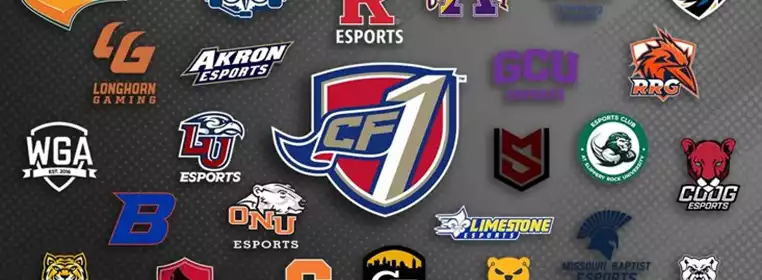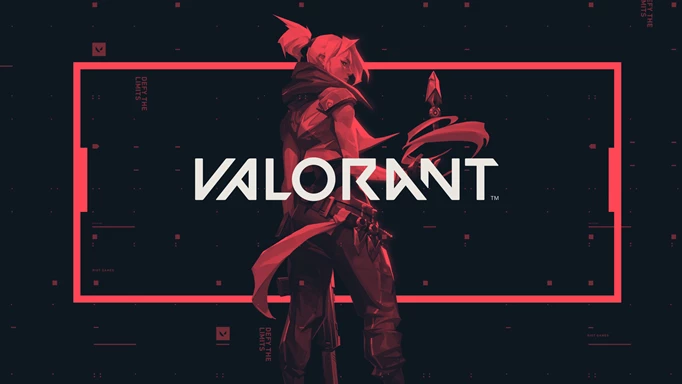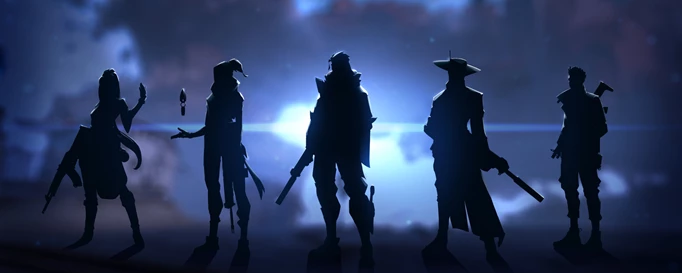A New Tournament Brings Life To Collegiate VALORANT

Every major esport most likely has a collegiate environment to follow suit, with multiple companies or competitive tournaments looking to provide the opportunities to the next generation of professional gamers in whatever scene they aim to cater for. Of course, now that VALORANT has been released and Riot Games has been propelling its own early competitive structure for the top of the ladder, it's only customary and necessary that a collegiate VALORANT ecosystem would begin to sprout in its wake.
The biggest prospect and most ambitious of these endeavours is Conference One (CF1), the newest tournament on the block looking to capitalise early on the hype and intrigue surrounding VALORANT, by providing a school years' worth of matches and competition for aspiring and talented college students to participate in. Conference One is leading the charge for being the standout tournament not only in the game but in the entire collegiate scene as a whole. Their goals, plans, and vision for the tournament look to not only leave a positive impression on the VALORANT scene but to elevate the standard for collegiate esports as a whole.
President Kiernan Ensor and Esports Operation Manager Scott Zackman sat down with GGRecon to talk about CF1's purpose and how this venture seeks to elevate itself and collegiate to a new level.

 Click to enlarge
Click to enlargeTHE BEST OF BOTH WORLDS
CF1 made sure to put a good mix of both the traditional sports experience and esports experience at the forefront of the tournament’s leadership. Both Ensor and Zackman boast a healthy blend of understanding the two environments through their past opportunities, but it’s Kiernan who holds the seniority and longer tenure.
“I’ve been working in traditional athletics for pretty much my entire life. Ever since I was old enough to hold a mop, I have been working in college athletics in some capacity.”
With such a dense involvement from early on in his life, Kiernan had lived the traditional athletic experience, even organising an NCAA wrestling championship at one point in his career. But esports has always been in his heart, like many, getting his first foray into the incredibleness of competitive gaming back in 2010, with the release of the StarCraft II beta. Since then, he’s been hooked and has had an eye on many of the most major titles, with League of Legends taking the top spot this past decade.
Transitioning from traditional college sports to collegiate esports around three years ago, it was almost seamlessly perfect bridging the two worlds together, and he found the prime opportunity serving as Canisius College’s Esports Coordinator, a position he held for two years. There, he expanded the school’s program massively to host an on-campus esports lab and built multiple teams and rosters from the ground up.
Scott started as a lacrosse player for several years before getting involved in esports, and it was in 2016 with Overwatch that he began his foray in collegiate esports at Rutgers University. Here he spent two-three years leading the school’s Overwatch roster as a manager and then transitioning to overseeing all of the school’s teams as Rutgers Esports’ competitive director. Here he found his calling, one that he would keep as his main focus with CF1, working closely with the players directly, seeing to their needs, and advocating for them in dealings with the school’s administration.
“Something that really drives it home for me, my philosophy, is I want to be forward-facing. I want to be there for the students, the coordinators, and the administrators.”
After his time at Rutgers, Zackman has spent a considerable amount of times appearing on panels and seminars across different events and conferences in and around the east coast. From small middle schools in New Jersey to Dreamhack Atlanta 2019, Scott was running the gambit of different appearances and advocacy opportunities before settling with the CF1 team.
It’s clear that both men believe in the esports experience, the pure magic that draws millions around the world to loving this unique industry. From the get-go, the duo inspires confidence that CF1 is aiming high and have the talent and knowledge to make sure they hit the target dead on. The underlying motivation is the passion and desire to give back to the collegiate communities that they themselves have been a part of, and that allowed them to grow as people to continue onward in their own personal journeys. With Kiernan overviewing the project as a whole, and Scott handling the one-on-one relationship between the teams and schools, the two of them have set out to accomplish something that could send waves across collegiate esports.
FILLING THE POTHOLES
However, you need more than just passion to help accomplish goals. First is understanding where the scene currently sits and what obstacles are hindering the path to success. Kiernan explains.
“I think any time when we talk about how we want to move the scene forward; we really have to look back at where we started. When we talk about collegiate esports, we talk about something that is somewhat fairly professionally organised at this point in time. But the roots of our scene that Scott and I want to work towards really started out at the most grassroots level you can almost possibly imagine.”
The grassroots level Kiernan refers to regards primarily student-run environments, where it’s the students themselves forming the teams, scheduling scrimmages and practices, involving themselves in tournaments. Collegiate esports at the most basic level is students forming clubs or student organisations on their own that would field their own rosters of students, managing and handling the endeavours all on their own.
Currently, there are plenty of tournaments that cover the vast majority of titles that students could possibly play in. Collegiate Star League (CSL), Collegiate League of Legends (CLoL), or Tespa, are just a few that cater to colleges and students, and the more and more opportunities that come up, the more schools and involvement there is amongst collegiate gamers across the country.
Yet, as time has gone on, there has been a big discrepancy between the schools who's administrations are invested and committed to growing their programs, and schools who are still only capable of being operated solely by the students and players themselves. What is Kiernan's solution? A higher standard needs to be universally applied for these competitive opportunities in order for the overall collegiate scene to be elevated higher.
"The problem is, so many of our leagues cater to that grassroots organisation aspect. Where, 'as long as it's you and four of your buddies you can play', and it's hard to advance the scene past a certain point, without taking that next leap forward… We want to start catering to those schools that want to make those investments, so they can see the ROI they need to see in order to justify the cost of growing their program. If we create that catalyst, then more schools would feel empowered to put more time, money, effort, and personnel, into their own programs to grow the scene five, ten years from now".
"The point to highlight is definitely administrative involvement". Scott added. "There's plenty of schools that have some sort of esports programs or student-run clubs. The ones that are going to thrive are the ones that have support from their administration to do stuff that their clubs cannot. That is stuff like jerseys, getting finals moved so they can participate in tournaments, similar to what you see in traditional sports. Practice facilities, coaching, that's the piece we see needed to push the scene forward. That is sort of what we're requiring."
CF1 aims to help foster students' ability to actively pursue conversations with their schools' administration to elevating their traditional clubs and organisations into potential fully-supportive programs. Through their requirements, they're essentially making students have to open up these channels with their administrators, even if it's through seemingly smaller feats, like signing off on a media/logo waiver, or an administrator verifying a roster's eligibility to play under CF1's ruleset.
"That's another big conversation piece for administrators and their students. When you look at a school like Akron University, they're going to be able to say right away that these players are cleared they're good to go. But when you look at a school that doesn't have that administrative oversight for their esports program, those student clubs are going to have to have that conversation with their administrators. [Even] if they go to their club advisor, that advisor can look up those things easily."
In order to raise the scene, you have to start raising the bar.
- Kiernan Ensor
GETTING A LOT OF THINGS RIGHT
Raising the bar is the motto for CF1; it’s what makes it stand out from its competitors. However, with only a tournament solely focused on VALORANT this coming fall, how is CF1 going to stack up when other esports leagues offer so many other opportunities in multiple titles?
“We won’t be VALORANT only for too long. If everything goes right, we’ll have another title in January. But we really did from the onset thought we needed to do this right. I’ve seen a lot of leagues start-up, and they always say ‘oh you can play these six titles’, but they haven’t even shown they could do one title well. Personally, I would rather succeed in one and then expand to two, so that we build that reputation. You build stability that lasts by showcasing structure, showcasing content, showcasing what you can really do.”
This would be the first test-run for CF1. They have big hopes and high ambitions for the game and the competition surrounding it at the collegiate level, but what about how it conveys this to an audience? What’s going to separate CF1 from its counterparts on the broadcast perspective
“As a person who loves esports, we know formulaically what we want from every broadcast. There’s been a creative rut that we’ve seen from the college scene. We really want to have it feel like it’s LCS, that it’s a more lived-in experience. You know the people you’re going to see week in and week out. We don’t want to just be match analysis, match analysis, we think that’s boring. It’s not going to grow the audience.”
Kiernan was big on proposing a full-on schedule for this tournament’s broadcast. Building the stories and community surrounding CF1’s competitors is a top priority. Pre-shows, mid-broadcast segments, features centred around coaches and administrators, and content surrounding the competitors, are all on CF1’s to-do list to give life and purpose to the tournament. Having enough material to keep the broadcast flowing and interesting, is all part of keeping this CF1 capable of being the best the collegiate scene has seen.

 Click to enlarge
Click to enlargeAbove all, what CF1’s main purpose and what it focuses on the most, is the player experience, how much they got out of participating in the bracket for the school year. CF1 needs to ensure that the players can get the most receptive and proactive service possible, and Scott lays it down clearly his expectation regarding the relationship built between them and the players.
“It’s listening to feedback and actually taking that criticism and running with it. If someone says, ‘hey we’re not getting enough support, or we’re not getting a lot of reach-back from your tournament administrators’, how do we fix that?”
Kiernan adds that the priority is to resolve issues and to communicate efficiently and quickly.
“We want to make sure we hire the right sorts of tournament organisers. We’ve been very clear with our schools with the expectations form the onset. Our code of conduct is up; our ruleset is up; schools have had ample time to really review it. To avoid the issues, we’ve been open and transparent from the start. The best way to do it is to put the right people in the right situation and then just work from there.”
With a lot of promises and high-achieving goals, Conference One is looking for a debut that could help change the collegiate scene as it's known today. All of that starts when the schedule premieres on September 25, during the launch live stream on their Twitch channel. Kiernan and Scott can be reached at @CF1_Kiernan and @scott_zackman, respectively, and CF1’s journey on their mission to change the collegiate esports landscape can be followed daily @cf1esports.
All images courtesy of Riot Games
